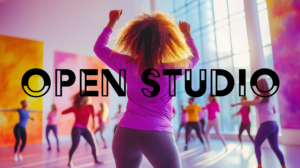The Open Studio Style: A New Paradigm for Collaborative Creation. In an era where digital walls often separate creators from their communities, the Open Studio style represents a refreshing alternative approach to collaborative work and community engagement. Pioneered by organizations like Calling Up Justice, this methodology dismantles traditional barriers between producers and audiences, creating spaces where transparency, serendipity, and mutual growth flourish.
What is the Open Studio Style?
The Open Studio style refers to a framework for meetings, gatherings, and creative sessions that deliberately keeps windows open to observers and participants alike. Unlike traditional closed-door meetings where only key stakeholders are present, Open Studio environments welcome community members to witness processes that would typically happen behind the scenes.
This approach transforms traditionally private spaces into public forums where individuals can engage at different levels of participation—from active contribution to passive observation. The critical distinction is that engagement remains entirely optional; participants can “lurk” without pressure to contribute, or they can actively comment and participate in the ongoing work.
Core Principles of the Open Studio Style
The Open Studio approach rests on several foundational principles:
Radical Transparency: By sharing works-in-progress and decision-making processes, organizations demonstrate a commitment to openness that builds trust with their communities.
Democratic Access: Everyone, regardless of status or position, can witness creative and organizational processes, democratizing knowledge that might otherwise remain exclusive.
Serendipitous Collaboration: By opening processes to a wider audience, organizations benefit from unexpected insights, connections, and collaborations that wouldn’t emerge in closed environments.
Multi-level Engagement: Participants can choose their level of involvement, creating a more inclusive environment that accommodates different comfort levels and capacity.
Calling Up Justice’s Implementation
Calling Up Justice exemplifies the Open Studio style through several innovative programs:
Open Development Space
Hosted by Claudia, this Zoom-based co-working space focuses on organizational growth and resource development. Participants share fundraising strategies, collaborate on grant applications, and explore mutual aid opportunities and frameworks. The transparent nature of these sessions allows community members to learn practical skills while contributing their own insights. Sometimes, these sessions are livestreamed to platforms like TikTok, extending the reach of this collaborative knowledge-sharing beyond the immediate participants to a much broader audience.
Followers Forever
This initiative represents both a digital tool and a movement aimed at redistributing power in creator-audience relationships. Weekly gatherings of engineers, producers, and advisors are livestreamed, allowing the public to witness the behind-the-scenes work that drives the organization’s initiatives. This transparency not only educates observers about technical processes but also creates accountability and builds trust with the community.
Gaming4Justice
Led by Maiamama, these sessions involve live coding of video games in development. By making the creative process visible, Gaming4Justice transforms game development from a mysterious black box into an educational opportunity where audiences can learn coding and game design principles through observation.
Why Adopt the Open Studio Style?
Organizations embrace the Open Studio style for several compelling reasons:
Community Enrichment
By sharing processes openly, organizations like Calling Up Justice contribute to a commons of knowledge and practice that benefits the broader community. This approach treats organizational knowledge not as proprietary information but as a public good that should be widely accessible.
Unexpected Benefits of Random Encounters
Open spaces create opportunities for serendipitous connections. When diverse observers witness creative processes, they bring perspectives that might never have been consulted deliberately. These random encounters often lead to innovative solutions, unexpected collaborations, and fresh approaches to persistent challenges.
Trust Building
Transparency builds trust. When communities can see how decisions are made, resources are allocated, and creative work unfolds, they develop deeper trust in the organization and its mission. This trust translates into stronger relationships, greater community buy-in, and more sustainable support.
Distributed Learning
Open Studio environments function as distributed learning ecosystems where knowledge flows in multiple directions. Organization members learn from community insights, while community members gain skills and understanding by witnessing professional practices firsthand.
Is Open Studio For You?
The Open Studio style represents a profound reimagining of how organizations can relate to their communities. By dismantling unnecessary barriers between creators and audiences, this approach fosters environments where transparency, serendipity, and mutual growth flourish. Organizations like Calling Up Justice demonstrate that when we open our creative and organizational processes to wider participation, everyone benefits—from the casual observer who gains new knowledge to the organization that discovers unexpected collaborators and insights.
As more organizations experiment with Open Studio methodologies, we may see a broader shift toward more collaborative, transparent, and community-oriented approaches to creation and decision-making across sectors. This shift has the potential to transform not just how organizations operate, but how knowledge is shared, how power is distributed, and how communities solve shared challenges.

